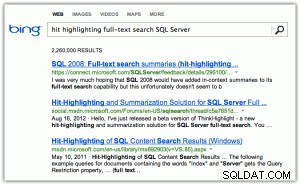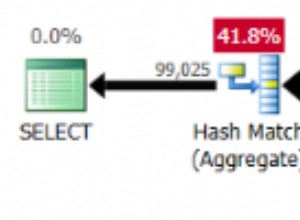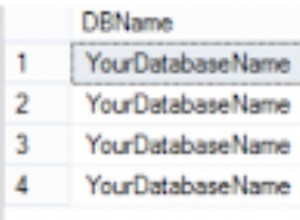Sprawdzasz ciągi względem pustego ciągu, co powoduje problemy; w Oracle lepiej sprawdź, czy Twój ciąg is not null :
SELECT CASE WHEN '7C54D3E133830A78E040A8C010014B7D' is not null
THEN '7C54D3E133830A78E040A8C010014B7D'
WHEN 'e84a4433966c4b8996ce34905acff63d' is not null
THEN 'e84a4433966c4b8996ce34905acff63d'
WHEN '7faa9126b1c6412fa58375ab2b2be1db' is not null
THEN '7faa9126b1c6412fa58375ab2b2be1db'
ELSE NULL
END
FROM DUAL
O sposobie, w jaki Oracle traktuje pusty ciąg i wartość null, tutaj znajdziesz coś więcej
Przykład:
select q'['' = '']' , case when '' = '' then 'YES' else 'NO' end from dual union all
select q'['' is null]' , case when '' is null then 'YES' else 'NO' end from dual union all
select q'['' = null ]' , case when '' = null then 'YES' else 'NO' end from dual union all
select q'[null = null]' , case when null = null then 'YES' else 'NO' end from dual union all
select q'[null is null]' , case when null is null then 'YES' else 'NO' end from dual union all
select q'['' != '']' , case when '' != '' then 'YES' else 'NO' end from dual union all
select q'['' is not null]' , case when '' is not null then 'YES' else 'NO' end from dual union all
select q'['' != null ]' , case when '' != null then 'YES' else 'NO' end from dual union all
select q'[null != null]' , case when null != null then 'YES' else 'NO' end from dual union all
select q'[null is not null]', case when null is not null then 'YES' else 'NO' end from dual
daje:
'' = '' NO
'' is null YES
'' = null NO
null = null NO
null is null YES
'' != '' NO
'' is not null NO
'' != null NO
null != null NO
null is not null NO
Jednym słowem, jedyne sprawdzenie, na którym możesz polegać, mówiąc o NULL , is:IS [NOT] NULL




